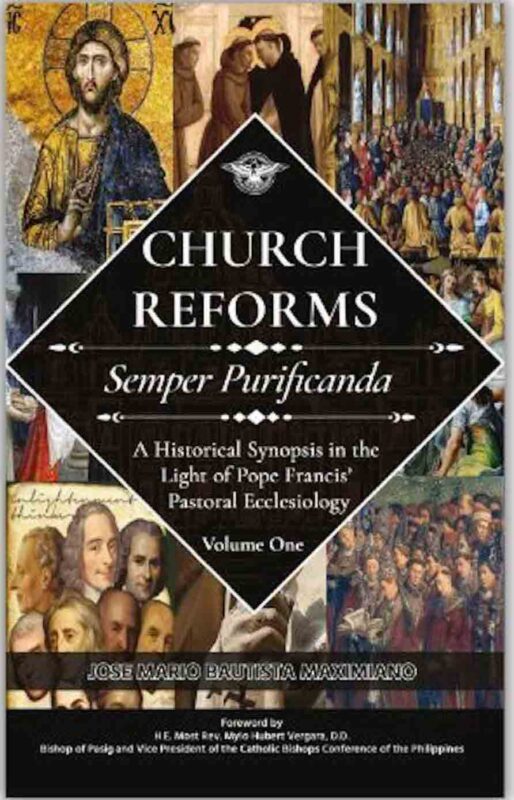
Dr. Jose Mario Bautista Maximiano’s new volume of Church Reforms, Ecclesia Semper Purificanda: Historical Synopsis In The Light Of Pope Francis’ Pastoral Ecclesiology.
Doctrinally suspect ecumenical councils? Worldliness among monastic orders? Scheming cardinals? These questions which have been brought up since 1964 are now in the minds of every good Catholic who cares about the State of Holy Mother Church. Many of them are pressured to take up positions, some of which are dangerous, in order to make sense of the present trials the Church must contend with.
But, as a comfort to our friends, the Church has seen it all before — and ten times over. For example, while one might think that Vatican II is ambiguous and contains double meanings, the Council of Constance was explicit in promoting the conciliarist heresy in one of its documents.
Thanks to Dr. Jose Mario Bautista Maximiano’s new volume of Church Reforms, Ecclesia Semper Purificanda: Historical Synopsis In The Light Of Pope Francis’ Pastoral Ecclesiology (published by Claretian Publications, 2023), we can see now the historical development of Church reforms — but in the light of the Gospel in both doctrine and ministry.
Far from being anthropocentric, this volume shows the hand of God present in every age. It shows that God’s plan — in the words of a friend — has already taken into account our stupidity. What history shows is both the vertical “theological” history (the work of God’s hand) and horizontal “anthropological” history, the progression of human affairs. Reading it has helped me to come to terms with a troubled Francis papacy, which is fitting as the author is the founder of the “Love Our Pope” Movement.
You may like: ‘Repair my Church’
This book is also doctrinally orthodox, and makes it clear that modernism and Freemasonry are unacceptable. However, at the same time, it does capitulate to the standard narrative of the “sins of the Church” and fails to challenge certain misconceptions about the Church which are the standard avenues of attack by non-Catholics, such as the Crusades and the Galileo affair. It is quite apologetic in those regards. It also calls Archbishop Marcel Lefebvre a “schismatic” and the SSPX “separatist,” which could alienate readers of a more traditional sort (and Pope Francis has refrained from using those words, except in his accompanying letter to Traditionis custodes).
Nevertheless, I endorse this volume as both academically and spiritually useful. I look forward to Dr. Maximiano’s next volume about liturgical reform and I publicly support his endeavors in the “Love Our Pope” movement.
Daniel Tyler Chua, author and philosopher, is currently taking Humanities in a six-year integrated master’s program at the University of Asia and the Pacific (UAP).

